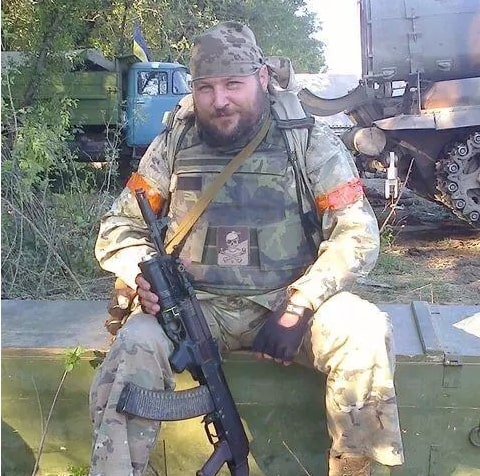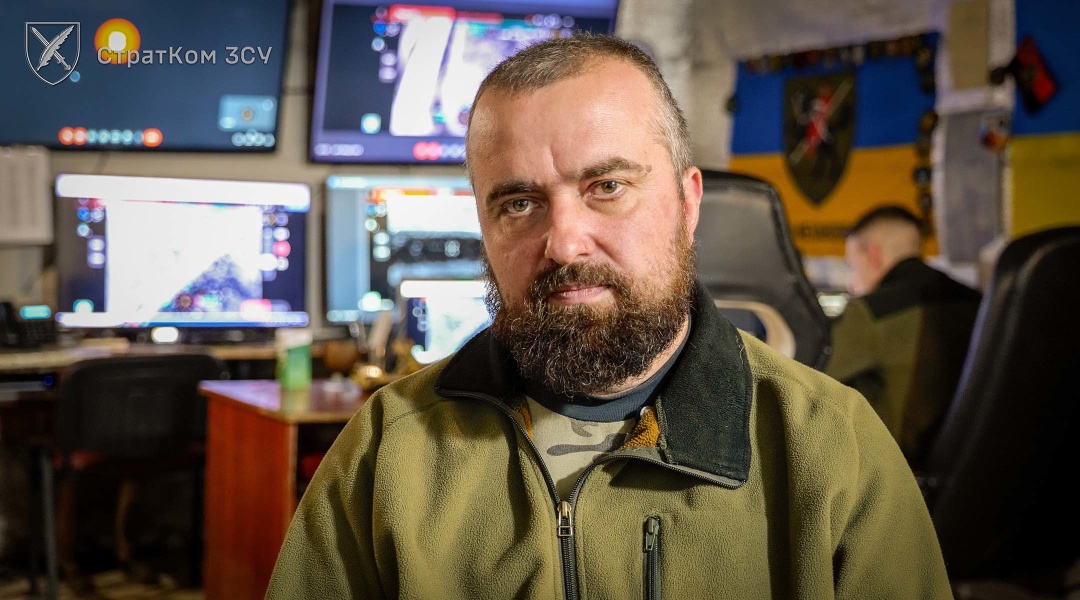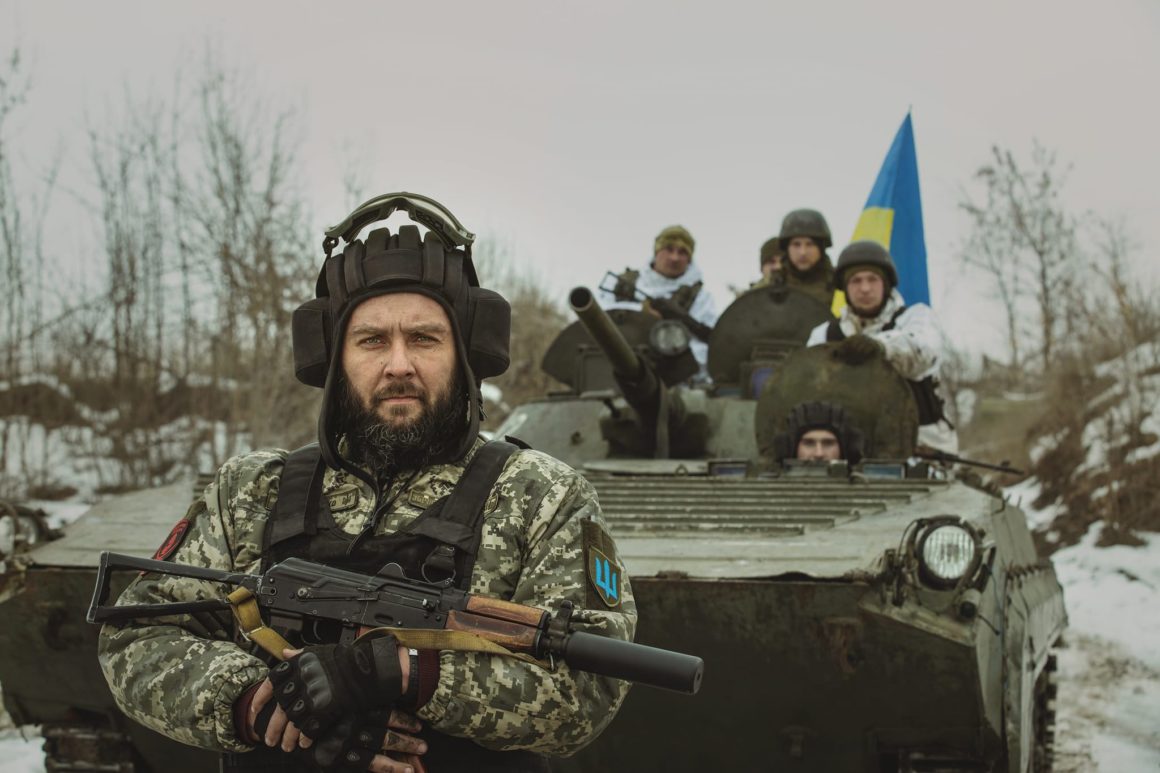The new voluntary recruiting campaign and the new law on compulsory mobilization rules are expected to provide soldiers with more help from the rear, rotations, and, most importantly, justice.
The Ukrainian government submitted the final draft of the new mobilization law to the parliament on 30 January 2024. The law will replace the previous law adopted back in the 1990s, which included an extended list of categories except from mobilization and, at the same time, didn't provide the end term for those serving during martial law. This created a division between the frontline and the rear and led to a shortage of personnel as the war dragged on.
Why is full-scale mobilization necessary?
"No great war has ever been won by so-called volunteers alone," explains Yevhen Dykyi, Ukrainian scientist leading the National Antarctic Research Center, veteran of the war, and activist advocating the new mobilization approach.
"I emphasize the word 'so-called' as a volunteer. Do you think we wanted to go to war? We did not want this at all, but we understood that letting the enemy here is a much worse evil than going to war. Not wanting to go to war is natural. But we must help people make an effort and make this unnatural choice. We have only two alternatives – mobilization or occupation."

Dykyi says that from his experience, many people in the rear are ready to join the army. However, they are not doing this right now because of injustice.
On the one hand, virtually everyone around them, including them, has legal reasons to avoid the service. On the other hand, joining the army means an endless commitment without fixed end terms.
In particular, the current law allows one to be exempt from service if he has ill parents, a child or wife with a disability, or works in state institutions or so-called "critical infrastructure" even if not related to the military, teaches at schools and universities. And even if one doesn't belong to any of these categories, he still would receive only a moderate fine for not visiting a military enlistment office upon a call in most cases. This creates favorable conditions for draft dodgers.
At the same time, leaving the service once one was mobilized bears criminal responsibility, unlike failure to visit the enlistment office upon a call.
All these factors create conditions when many civilians, even if ready to fight, are not going to the army.
On the other hand, some current servicemen feel frustrated given that they have already served two years in difficult conditions without any perspective to return home. This turns into general skepticism towards the government.
"Guys, by the way, do you believe that all of us/you will be swapped or demobilized after 36 months?"

asked a serviceman and businessman, Andriy Mochurad
, who often comments about mobilization on Facebook.
The post mainly received skeptical comments, such as “If I live until that moment,” or “Hardly. Mobilization is going nowhere. Nobody will change us.”
The government proposed 36 months as a term of service during martial law, after which service members are freed from mobilization duty for two years. This norm, however, is yet to be adopted by the parliament and, first of all, requires the mobilization of enough reserves.
"Let's be honest. In no country in the world was a large-scale mobilization ever popular," said Dykyi. "It simply cannot be popular because going to war is against human psychology. And the percentage of those who can explain to themselves that going to war is not the worst possible evil is not that large in all nations."
He recalls that at the early stage of the war, many enthusiastically joined the army in a dash of self-sacrifice to give others and the state time to prepare and adjust to the war reality. Dykyi describes how many Ukrainians returned from abroad in February-March 2022 to fight, including half of the researchers in Ukraine's Antarctic research Station "Academic Vernandskyi," whom he knew and with whom he used to work.
Two of them didn't even wait for a regular change of personnel at the Antarctic station and, using tourist yachts passing by, abandoned the Antarctic to be in the trenches just three weeks later. Another of his friends abandoned PhD studies in Sweden, to which he was going for ten years, and returned to Ukraine to serve.
But now is another stage of the war, Dykyi emphasizes, when the system's organization determines success. Full-scale mobilization is part of this effort.
He summarizes that the people who donned fatigues almost two years ago are physically unable to fight this war to victory. They can hold the front for a while longer and provide Ukrainians in the rear with a few more months of quiet life, but no more.
"Then they will simply run out, and if we don't replace them before then, a horde will come," he says. "During 2023, the Russian army was replenished with half a million contract soldiers, and after the fall of 2022, they recruited 450,000 mobiks. Recruitment in Russia continues… Our numbers should be, if not equal, then at least proportional."
How many additional soldiers should Ukraine mobilize?
Speaking with a journalist from the German TV channel ARD in Kyiv, Ukraine's President Volodymyr Zelenskyy said Ukraine has 880,000 servicemen in the army. In turn, Russian President Vladimir Putin said 617,000 Russian troops are currently deployed in Ukraine. It is impossible to verify these numbers.
At the same time, according to Ukrainian Intelligence, Russia is currently recruiting and mobilizing nearly 1,100 troops every day, which means almost 400,000 per year. This is more than official statistics of Russian losses according to Ukraine's General Staff, and definitely more than Ukraine is currently mobilizing.
During his press conference on 19 January 2023, Zelenskyy said that the military asked to mobilize nearly 500,000 troops. Later, Ukraine's Commander-in-Chief, Valeriy Zaluzhnyi
, rejected this number, saying that the scope of mobilization depends on Ukrainian plans and enemy actions. He, however, highlighted the need for the new mobilization rules given the growing number of Russian troops and the need for reserves.
"The publicly announced number of half a million recruits for the Armed Forces is not too much. It is not enough. I don't see in this figure either a reserve for compensating for the demobilization of those who have already served for three years, or even more reserves for creating an advantage over the enemy," Dykyi commented.
He believes that, if mobilized steadily, half a million, e.g. 40-50,000 per month, is okay for a defensive war. It is enough to firmly hold the front, replace losses, and ensure regular rotations between the front and the rear. But no more.
"If we manage to recruit half a million in one big wave, in three to four months, to put them in the ranks of the Armed Forces in the spring, and then quietly recruit another 40-50,000 every month, then it is a different story – a story about the approach of our victory," he believes.
Ukraine has a total mobilization reserve of nearly 4 million men. Given the current proportion of losses, this is more than enough to compete with Russia. But only If recruits are mobilized quickly enough and adequately trained.
Are Ukrainians in the rear motivated to fight?
There are cases when men are trying to flee Ukraine in an attempt to avoid mobilization despite the official ban for men to leave the country during martial law. Such mobilization dodgers are mostly being stopped on the border, although some use forged documents or even illegally swim across the Tysa River to Romania. Some sign education contracts to formally enroll in university for a second or third education or even pay a bribe for a forged disability certificate.
In total, nearly 7 million Ukrainians left the country since the war began, most of whom are women and children. Still, it is estimated that nearly 200,000 Ukrainian men of conscription age are currently in Germany. Many of them had legal grounds to leave Ukraine, according to the current mobilization law, but others were also dodgers.
The majority of Ukrainians are simply doing their job in the rear. They often say they want rules equal to all. Some also repeat populist calls that they "want to see more MPs and local governors serving," even though such cases also exist.
Ukraine moves to plug loopholes, demand equal sacrifice in mobilization
Finally, there is still a quite significant group that joins the army voluntarily these days. Ukraine's Ministry of Defense launched a new recruitment campaign in November 2023 in cooperation with job search services, inviting people to choose a unit and desired position voluntarily in advance instead of waiting for mobilization. Recruits sign official contracts with the best and most prestigious military units, guaranteeing they will serve only in these units.
The results were inspiring, demonstrating there are still enough motivated Ukrainians in the rear. Only in the first two months of the project more than 50,000 Ukrainians submitted their applications for various units and positions, with nine CVs for one position on average. One of the most prestigious Ukrainian job search platforms, Lobby X, received 19,907 applications for nearly 900 military positions only in November and December 2023.
The success of recruitment is also explained by the ability to join units that, in the opinion of the recruit, have excellent and responsible commanders. They don’t fear being added to some less professional units with higher losses.
In the end, mobilization is essential not only to staff the ranks of the armed forces but also to connect the rear and the front, making people in the rear work harder towards victory, either by paying taxes and contributing with donations for the military or by being mobilized to the defense industry. After the frontline stalled, people in the rear became somewhat relaxed, even though the intensity of the fighting on the front never decreased.
A successful recruitment campaign can work only in pair with regular mobilization

The new mobilization law, making mobilization inevitable for larger categories of men, can, in this way, also motivate them to participate in the recruitment campaign. Instead of waiting to be compulsively mobilized, they would prefer to choose Azov, Third assault brigade, 93rd Brigade of the Cold Ravine, or some other units that became the most popular among the recruits.
Ukraine's third assault brigade, for example, has more recruits than available places in its ranks, and not everyone passes the training challenge.
Bot, the commander of the 1st mechanized battalion of the 3rd assault brigade, said
that training is the key to successful mobilization and motivation. As soon as recruits come, they are sent for rigid training, and fear vanishes after they see they already know how to fight.
"Many are afraid to go because they don't know anything at all. And, because they believe in the myth that there is nothing in the army, and they won't be taught anything... But if a person wants to learn and become a specialist – they will find the way. The army provides opportunities."
Bot also says that the contemporary culture is "ill" because it encourages people to think only about their rights, not cultivating responsibility and readiness to fulfill duty:
"We have a disease in society – everyone demands their rights. Everyone is completely focused on their rights... but there must also be responsibilities. Or how? Are we just anarchists: we got together, everyone has rights, while duties are unnecessary? Citizens must protect their state," Bot says.

Petro, deputy battalion commander from the Avdiivka direction, also explains another simple way to help recruits overcome fear and raise their motivation. He says newcomers should be added to already combat-experienced units, where experienced soldiers will uplift their spirit and advice on practical matters. It is better than the unification of mobilized in completely new units.
"The effective method is when a newcomer gets into the personnel who have been fighting for a relatively long time. The combat environment, the guys who engage in clashes with the enemy every night, every day – this is the best school. In particular, motivational. There are, of course, those who cannot overcome their fear in any way. We try to find some practical application for them as well; for example, we instruct them to work with documents because someone also needs to do paperwork. But in most cases, it works. People adapt quite quickly," Petro says.
There are numerous cases when Ukrainians, who initially were afraid of war, became good fighters, Dykyi also adds, recalling stories of his friends. And even under the current outdated law, mobilization continues, albeit not rapidly enough.
Although soldiers on the frontline and partially even civilians are tired of the long war, they are not ready for any concession and want to continue the fight. According to the polls, 80% of Ukrainians strongly deny any possibility of giving up territories for Russia in exchange for a ceasefire, understanding that this peace would be only a break before another war. They also believe in victory. Yet, it requires everyone's commitment. The new rules are designed precisely to make mobilization at least a little more equal and fair.
Read more:
- The future is being decided in Ukraine: key takeaways from YES forum 2023 in Kyiv
- Ukraine passes law to enhance military readiness and veteran welfare
- Intel: Russia intensifies forced mobilization in occupied territories of Ukraine
- Ukraine’s Commander-in-Chief addresses mobilization and frontline situation in briefing
- Zelenskyy: Military proposes to mobilize up to 500,000 more people
- Russian authorities seek to suppress small-scale dissent among soldiers’ wives – UK intel
- Danilov warns of possible total mobilization in Russia after 2024 presidential election





